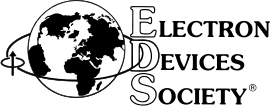- Home
- About EDS
- Governance
- Standing Committees
- Awards Committee
Awards Committee
By serving on an IEEE EDS Award Committee, you are unable to be involved in that award's nominations as an endorser, reference, or nominator.
Awards Committee Chair
Ravi M. Todi
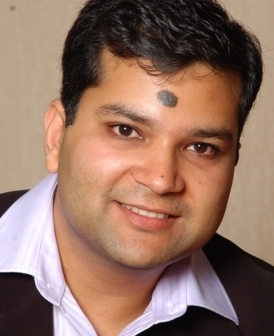
Ravi Todi received his M.S. degree in Electrical and Mechanical Engineering from University of Central Florida in 2004 and 2005 respectively, and his doctoral degree in Electrical Engineering in 2007. His graduate research work was focused on gate stack engineering, with emphasis on binary metal alloys as gate electrode and on high mobility Ge channel devices. In 2007 he started working as Advisory Engineer/Scientist at Semiconductor Research and Development Center at IBM Microelectronics Division focusing on high performance eDRAM integration on 45nm SOI logic platform. Starting in 2010 Ravi was appointed the lead Engineer for 22nm SOI eDRAM development. For his many contributions to the success of eDRAM program at IBM, Ravi was awarded IBM’s Outstanding Technical Achievement Award in 2011. Ravi Joined Qualcomm in 2012, responsible for 20nm technology and product development as part of Qualcomm’s foundry engineering team. Ravi is also responsible for early learning on 16/14 nm FinFet technology nodes. Ravi had authored or co-authored over 50 publications, has several issues US patents and over 25 pending disclosures.
Lecuture Topic
- MOS Devices and Technology
Awards Committee Members
Ilesanmi Adesida
Giovanni Ghione - Editor-in-Chief
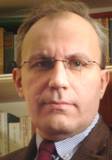
Department of Electronics and Telecommunications, Torino, Italy
Giovanni Ghione graduated cum laude in Electronic Engineering from Politecnico di Torino, Torino Italy in 1981. He was Assistant Professor in Electromagnetic Fields since 1983, Associate Professor in Circuit Theory with Politecnico di Milano, Milano Italy since 1987, and finally Full Professor in Electronics since 1990, first with University of Catania, then again with Politecnico di Torino. His research activity has been mainly concerned with high-frequency electronics and optoelectronics. He has contributed to the physics-based modelling of compound semiconductor devices, with particular interest in the numerical noise modeling in the small- and large-signal regimes, in the thermal modeling of devices and integrated circuits, and in the modeling of widegap semiconductors devices and materials. He has also done research in the field of microwave electronics, with contributions in the modeling of passive elements, in particular coplanar components, and in the design of power MMICs. Prof. Ghione was actively engaged since 1985 in research on optoelectronic devices, with application to the modeling and design of near and far-IR photodetectors, electrooptic and electroabsorption modulators, and GAN-based LEDs. Prof. Ghione has authored or co-authored more than 300 research papers on the above subjects and five books. He is an IEEE Fellow (class 2007). He has been a member of the QPC subcommitee of IEDM in 1997-1998 and in 2006-2007 and Chair in 2008; in 2009-2010 he was the EU Arrangement Co-Chair of IEDM. From 2010 to 2015 he has been chair of the EDS Committee on Compound Semiconductor Devices and Circuits. He has been Chair of the GAAS2003 conference and he has been subcommittee chair in several SCs of the European Microwave Week. He was President of the Library System of Politecnico from 1997 to 2007. From 2007 to 2015 he was the Head of the Department of Electronics and Telecommunications of Politecnico di Torino.
Hiroshi Iwai - Fellow
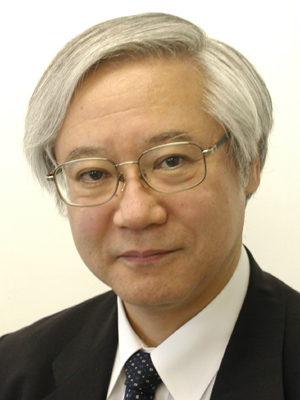
Lecture Topics:
- Future of Nano CMOS Technology
Arokia Nathan - Fellow
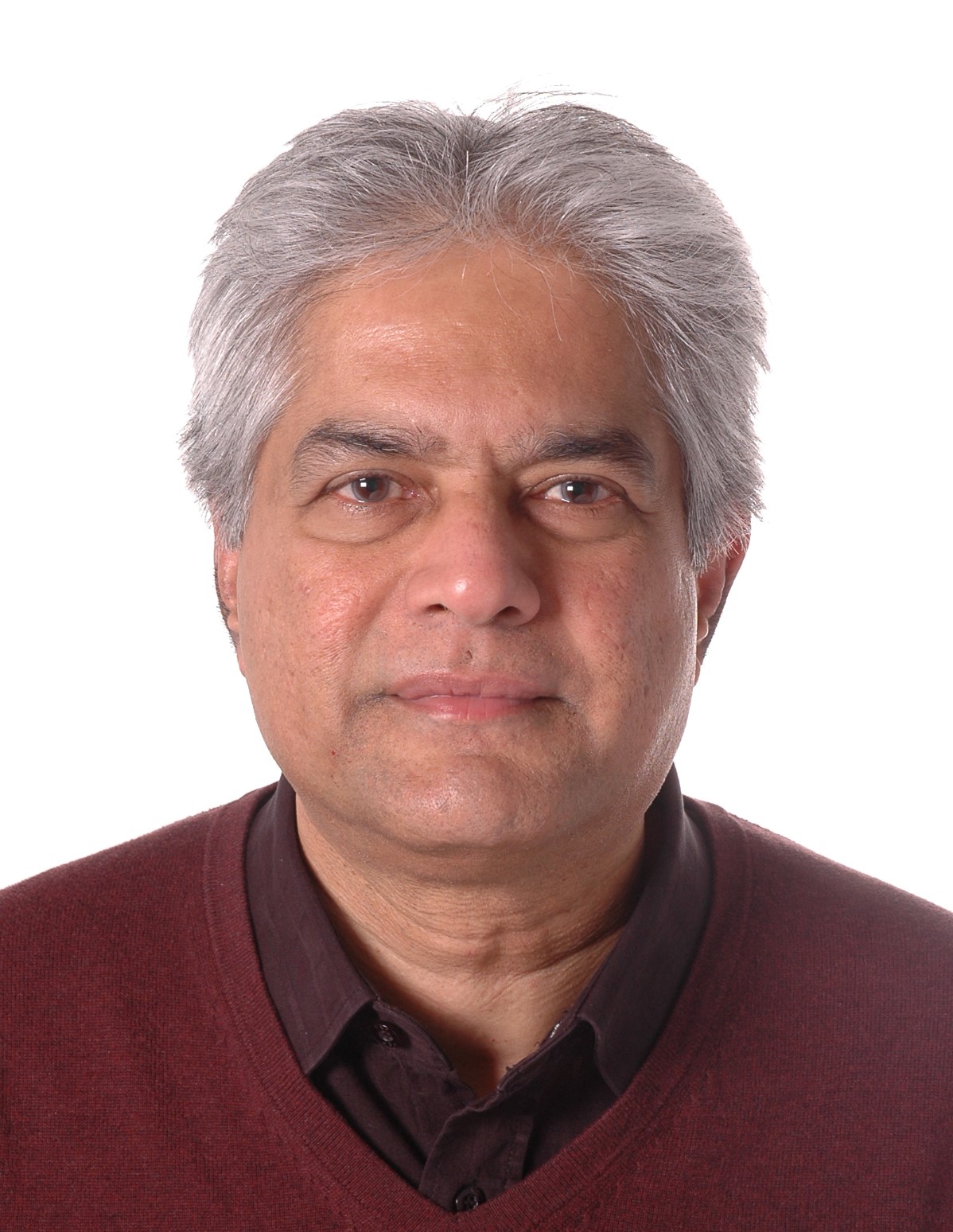
Arokia Nathan is currently a Bye-Fellow and Tutor at Darwin College, University of Cambridge, UK. He received his PhD degree in electrical engineering from the University of Alberta, Canada, in 1988. He joined LSI Logic USA, and subsequently, the Institute of Quantum Electronics, ETH Zürich, Switzerland, before joining the Electrical and Computer Engineering Department at the University of Waterloo, Canada. In 2006, he joined the London Centre for Nanotechnology, University College London, UK, as the Sumitomo Chair of Nanotechnology. He moved to Cambridge University in 2011 as the Chair of Photonic Systems and Displays. He has more than 600 publications, including six books, and more that 110 patents and four spin-off companies. He is the co-founder of Cambridge Touch Technologies, UK and VISBAN Networks UK where he is a Director and Chief Technical Officer. He is a Fellow of IEEE and SID, a Distinguished Lecturer of the IEEE Electron Devices Society and Sensor Council, a Chartered Engineer (UK), Fellow of the Institution of Engineering and Technology (UK), and winner of the 2020 IEEE EDS JJ Ebers Award.
Lecture Topics
- Flexible Electronics
- Oxide Semiconductor Electronics
- Ultralow Power Transistors and Sensor Interfaces
- Active Matrix OLED Displays
- TFT Compact Modeling and Parameter Extraction
- Nanoscale Large Area Electronics
Samar K. Saha - Life Fellow
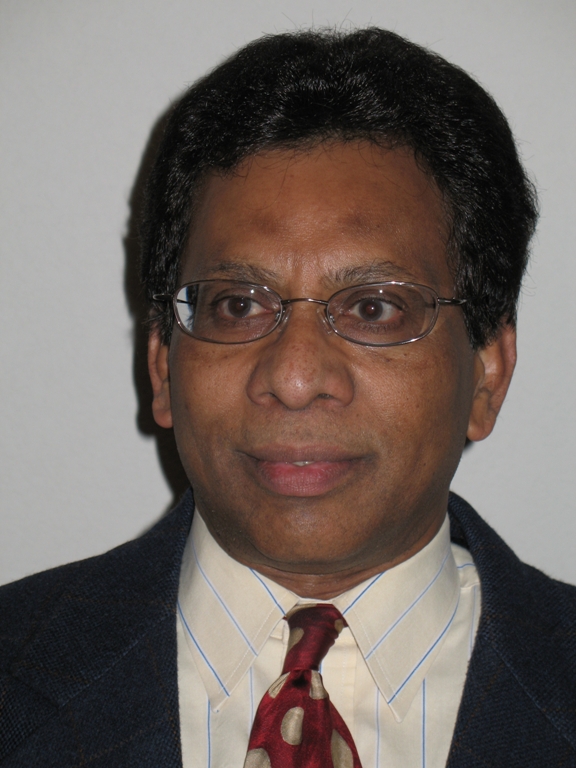
Samar Saha has served as the 2016-2017 President of the IEEE Electron Devices Society (EDS) and currently serving as the Senior Past President and Chairs of the J.J. Ebers Award and Fellow Evaluations Committees. He is the Chief Research Scientist at Prospicient Devices, California, USA and an Adjunct faculty in the Electrical Engineering (EE) department, Santa Clara University, USA. In the past, he has worked in various technical and management positions for National Semiconductor, LSI Logic, Texas Instruments, Philips Semiconductors, Silicon Storage Technology, Synopsys, DSM Solutions, Silterra USA, and SuVolta. In academia, he has worked as a faculty member in the EE departments at Southern Illinois University, Carbondale; Auburn University; the University of Nevada, Las Vegas; and the University of Colorado, Colorado Springs.
Dr. Saha has authored over 100 research papers; two books, entitled, FinFET Devices for VLSI Circuits and Systems (2020) and Compact Models for Integrated Circuit Design: Conventional Transistors and Beyond (2015); one book chapter on Technology Computer-Aided Design (TCAD); and holds 12 US patents. His research interests include exploratory device and process architectures, compact modeling, renewable energy, and R & D management. He is an IEEE Life Fellow and a Fellow of the Institution of Engineering and Technology, UK.
Lecture Topics: (1) Advanced Field-Effect Transistor Device Technologies for Ultra-low Power VLSI Circuits and Systems at Nanometer Nodes; (2) Physics of Integrated Circuit Device Models for VLSI Circuit Design; (3) Thin Film Transistors for Ubiquitous Flexible Electronics; (4) Evolution of Semiconductor Devices Enabling Smart Environments and Integrated Ecosystems.
Paul K.L. Yu - Fellow
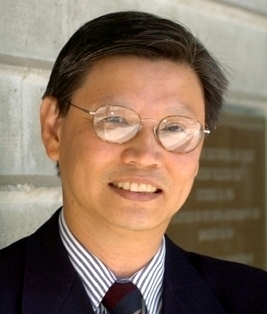
ECE Department, MS 0407
Lecture Topics:
- Recent Advances in Photonic Devices for RF/Wireless
- Semiconductor Wafer Bonding Technology for Device Integration
- Green Campus projects
Bin Zhao - Fellow
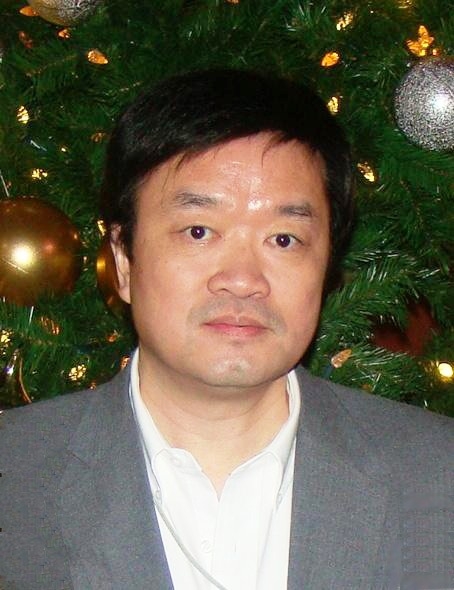
Lecture Topics:
- Analog/Mixed-Signal/RF IC and Enabling Technologies
- High Performance VLSI Interconnect
Celebrated Member Award Committee Chair
Bin Zhao - Fellow
Lecture Topics:
- Analog/Mixed-Signal/RF IC and Enabling Technologies
- High Performance VLSI Interconnect
Celebrated Member Award Committee Members
Fernando Guarin - Fellow
Lecture Topics:
Reliability and scaling of CMOS, SiGe Reliability
Arokia Nathan - Fellow
Arokia Nathan is currently a Bye-Fellow and Tutor at Darwin College, University of Cambridge, UK. He received his PhD degree in electrical engineering from the University of Alberta, Canada, in 1988. He joined LSI Logic USA, and subsequently, the Institute of Quantum Electronics, ETH Zürich, Switzerland, before joining the Electrical and Computer Engineering Department at the University of Waterloo, Canada. In 2006, he joined the London Centre for Nanotechnology, University College London, UK, as the Sumitomo Chair of Nanotechnology. He moved to Cambridge University in 2011 as the Chair of Photonic Systems and Displays. He has more than 600 publications, including six books, and more that 110 patents and four spin-off companies. He is the co-founder of Cambridge Touch Technologies, UK and VISBAN Networks UK where he is a Director and Chief Technical Officer. He is a Fellow of IEEE and SID, a Distinguished Lecturer of the IEEE Electron Devices Society and Sensor Council, a Chartered Engineer (UK), Fellow of the Institution of Engineering and Technology (UK), and winner of the 2020 IEEE EDS JJ Ebers Award.
Lecture Topics
- Flexible Electronics
- Oxide Semiconductor Electronics
- Ultralow Power Transistors and Sensor Interfaces
- Active Matrix OLED Displays
- TFT Compact Modeling and Parameter Extraction
- Nanoscale Large Area Electronics
Samar K. Saha - Life Fellow
Samar Saha has served as the 2016-2017 President of the IEEE Electron Devices Society (EDS) and currently serving as the Senior Past President and Chairs of the J.J. Ebers Award and Fellow Evaluations Committees. He is the Chief Research Scientist at Prospicient Devices, California, USA and an Adjunct faculty in the Electrical Engineering (EE) department, Santa Clara University, USA. In the past, he has worked in various technical and management positions for National Semiconductor, LSI Logic, Texas Instruments, Philips Semiconductors, Silicon Storage Technology, Synopsys, DSM Solutions, Silterra USA, and SuVolta. In academia, he has worked as a faculty member in the EE departments at Southern Illinois University, Carbondale; Auburn University; the University of Nevada, Las Vegas; and the University of Colorado, Colorado Springs.
Dr. Saha has authored over 100 research papers; two books, entitled, FinFET Devices for VLSI Circuits and Systems (2020) and Compact Models for Integrated Circuit Design: Conventional Transistors and Beyond (2015); one book chapter on Technology Computer-Aided Design (TCAD); and holds 12 US patents. His research interests include exploratory device and process architectures, compact modeling, renewable energy, and R & D management. He is an IEEE Life Fellow and a Fellow of the Institution of Engineering and Technology, UK.
Lecture Topics: (1) Advanced Field-Effect Transistor Device Technologies for Ultra-low Power VLSI Circuits and Systems at Nanometer Nodes; (2) Physics of Integrated Circuit Device Models for VLSI Circuit Design; (3) Thin Film Transistors for Ubiquitous Flexible Electronics; (4) Evolution of Semiconductor Devices Enabling Smart Environments and Integrated Ecosystems.
Ravi M. Todi
Ravi Todi received his M.S. degree in Electrical and Mechanical Engineering from University of Central Florida in 2004 and 2005 respectively, and his doctoral degree in Electrical Engineering in 2007. His graduate research work was focused on gate stack engineering, with emphasis on binary metal alloys as gate electrode and on high mobility Ge channel devices. In 2007 he started working as Advisory Engineer/Scientist at Semiconductor Research and Development Center at IBM Microelectronics Division focusing on high performance eDRAM integration on 45nm SOI logic platform. Starting in 2010 Ravi was appointed the lead Engineer for 22nm SOI eDRAM development. For his many contributions to the success of eDRAM program at IBM, Ravi was awarded IBM’s Outstanding Technical Achievement Award in 2011. Ravi Joined Qualcomm in 2012, responsible for 20nm technology and product development as part of Qualcomm’s foundry engineering team. Ravi is also responsible for early learning on 16/14 nm FinFet technology nodes. Ravi had authored or co-authored over 50 publications, has several issues US patents and over 25 pending disclosures.
Lecuture Topic
- MOS Devices and Technology
Distinguished Service Award Committee
Early Career Award Committee Chair
Arokia Nathan - Fellow
Arokia Nathan is currently a Bye-Fellow and Tutor at Darwin College, University of Cambridge, UK. He received his PhD degree in electrical engineering from the University of Alberta, Canada, in 1988. He joined LSI Logic USA, and subsequently, the Institute of Quantum Electronics, ETH Zürich, Switzerland, before joining the Electrical and Computer Engineering Department at the University of Waterloo, Canada. In 2006, he joined the London Centre for Nanotechnology, University College London, UK, as the Sumitomo Chair of Nanotechnology. He moved to Cambridge University in 2011 as the Chair of Photonic Systems and Displays. He has more than 600 publications, including six books, and more that 110 patents and four spin-off companies. He is the co-founder of Cambridge Touch Technologies, UK and VISBAN Networks UK where he is a Director and Chief Technical Officer. He is a Fellow of IEEE and SID, a Distinguished Lecturer of the IEEE Electron Devices Society and Sensor Council, a Chartered Engineer (UK), Fellow of the Institution of Engineering and Technology (UK), and winner of the 2020 IEEE EDS JJ Ebers Award.
Lecture Topics
- Flexible Electronics
- Oxide Semiconductor Electronics
- Ultralow Power Transistors and Sensor Interfaces
- Active Matrix OLED Displays
- TFT Compact Modeling and Parameter Extraction
- Nanoscale Large Area Electronics
Early Career Award Committee Members
Roger Booth
Mansun J. Chan - Fellow
Lecture Topics:
- Nano-device physics and technology
- Device modelling and circuit simulation
- Interconnect Technology
- Non-volatile memory technology
- Bio-sensors and circuits
Biography: Mansun Chan (S’92-M’95-SM’01-F’13) received Ph.D. degrees from the UC, Berkeley in 1995. He is one of the major contributors to the unified BSIM model for SPICE, which has been accepted by most US companies and the Compact Model Council (CMC) as the first industrial standard MOSFET model. In January 1996, he has joined the EEE faculty at Hong Kong University of Science and Technology. After that, he developed a SOI MOSFET model, which has been adopted by UC Berkeley as the core of the BSIMSOI model. Between July 2001 and December 2002, he was a Visiting Professor at University of California at Berkeley and the Co-director of the BSIM program. In this capacity, he has successfully completed the technology transfer of BSIM3SOI to be the first industrial standard SOI MOSFET model. In addition to device modeling, Prof. Chan’s current research interests also include nano-transistor fabrication technology, carbon-based device physics, printable transistors, 3D integrated circuits, bio-sensors and cloud computing based simulation platform. He is current working on an interactive modeling and online simulation (i-MOS) platform to facilitate the interactions between model developers and circuit designers using the Internet technology.
Prof. Chan is a recipient of the UC Regents Fellowship, Golden Keys Scholarship for Academic Excellence, SRC Inventor Recognition Award, Rockwell Research Fellowship, R&D 100 award (for the BSIM3v3 project), Teaching Excellence Appreciation award, Distinguished Teaching Award and the Shenzhen City Technology Innovation Award by the Chinese Government. He is a Fellow and Distinguished Lecturer of IEEE.
Shuji Ikeda
NIRC
Shuji Ikeda (M’91-SM’02-F’04) received the B.S. degree in Physics, PhD. in Electrical Engineering from Tokyo Institute of Technology, Tokyo, Japan in 1978 and 2003 respectively and the M.S. degree in Electrical Engineering from Princeton University, Princeton, New Jersey, USA in 1987. He joined Semiconductor and Integrated Circuit Group, Hitachi ltd., Tokyo, Japan in 1978, where he was engaged in research and development of state of the art SRAM process and devices. He was also working on developing process technology for LOGIC, embedded memories, and CMOS power RF devices and on transferring technology to mass production line. He invented some of the outstanding structures for SRAM. He pioneered process to implement new materials in mass production, including W-polycide, Al-Cu-Si in 1984 and in-situ phosphorus-doped-polysilicon in 1990. He is the first to realize Lightly Doped Drain (LDD) in production to suppress Hot Carrier Injection in 1984. He also firstly implemented polyimide coat of the chip to immune SER caused by alpha particle from the resin covers the chip. In October 2000, he joined Trecenti Technologies Inc. He developed new process scheme with aggressive reduction of process time and suitable for single-wafer processing. That achieved less than 0.25days/layer cycle time. In April 2005, he joined ATDF at Austin Texas, as a Director of Technology. Where he develops various kinds of technologies includes scaled CMOS, non-classical CMOS, new materials and tools. He established tei Technology LLC in May 2008, Omni Water Solutions LLC, in 2009 at Austin Texas. He started tei Solutions Inc in Tsukuba, Ibaraki, Japan in 2010, where, he manages R&D foundry developing new devices, process technologies for VLSIs. He also integrates emerging technology onto semiconductor manufacturing technology to create innovative products/businesses. Due to his contributions to 200 MHz RISC microprocessor, he got 1999 R&D 100 Award. He served as subcommittee and executive committee member of IEDM from 1993 to 2002. He introduced Manufacturing Session in 1998 and chaired IEDM in 2002. He was a member of EDS Administrative Committee from 2005 to 2010. He was a technical program member for VLSI Technology Symposium in 2007 and 2008. He serves as a chairman of VLSI committee of EDS from 2009 and AdHoc Committee on Asia EDS Conference from 2014.
Benjamin Iniguez - Senior Member
Benjamin Iñiguez obtained the Ph D in Physics in 1992 and 1996, respectively, from the Universitat de les Illes Balears (UIB). From February 1997 to September 1998 he was working as a Postdoctoral Researcher at the Rensselaer Polytecnhnic Institute in Troy (NY, USA). From September 1998 to January 2001 he was working as a Postdoctoral Scientist in the Université catholique de Louvain (Louvain-la-Neuve, Belgium), supported by two Marie Curie Fellowships from the European Commission. In February 2001 he joined the Department of Electronic, Electrical and Automatic Control Engineering (DEEEiA)of the Universitat Rovira i Virgili (URV), in Tarragona, Catalonia, Spain) as Titular Professor. In February 2010 he became Full Professor at URV. He obtained the Distinction from the Generalitat for the Promotion of University Research in 2004 and the ICREA Academia Award (the highest award for university professors in Catalonia, from ICREA Institute) in 2009 and 2014, for a period of 5 years each. He led one EU-funded project (“COMON”, 2008-12) devoted to the compact modeling of nanoscale semiconductor devices and he is currently leading one new EU-funded project (DOMINO, 2014-18) targeting the compact modeling of organic and oxide TFTs. His main research interests are the characterization, parameter extraction and compact modelling of emerging semiconductor devices, in particularorganic and oxide Thin-Film Transistors, nanoscale Multi-Gate MOSFETs and GaN HEMTs. He has published more than 150 research papers in international journals and more than 130 abstracts in proceedings of conferences.
Lecture Topics
Compact device modeling
Semiconductor device parameter extraction
Physics of Thin-Film Transistors
Graphene and TMD devices
Durga Misra - Senior Member
- Nanoelectronics to Nanotechnology: More Moore and More than Moore
- Self-Heating in FinFETs and Its Impact on Logic Circuits
Huaqiang Wu - Memory Device and Technology, Emerging Technologies and Devices
Dr. Huaqiang Wu is presently the director of the Department of Microelectronics and Nanoelectronics, and the director of the Institute of Microelectronics, Tsinghua University, Beijing, China. Dr. Wu has also served as the deputy director of Beijing Innovation Center for Future Chips. Dr. Wu received his Ph.D. degree in electrical and computer engineering from Cornell University, Ithaca, NY, in 2005. Prior to that, he graduated from Tsinghua University, Beijing, China, in 2000 with double B.S. degrees in material science & engineering and enterprise management. From 2006 to 2008, he was a senior engineer and MTS in Spansion LLC, Sunnyvale, CA. He joined Tsinghua University in 2009. Dr. Wu’s research interests include emerging memory and neuromorphic computing technologies. Dr. Wu has published more than 200 technical papers and owns more than 90 US and China patents. Dr. Wu’s papers have appeared on Nature, Nature Nanotechnology, Proceedings of the IEEE, IEEE EDL, ISSCC, IEDM, VLSI, etc. Currently, Dr. Wu serves as the Technical Program Chair (TPC) for 2021 EDTM conference and TPC member of VLSI Technology, DAC, VLSI-TSA, etc.
Chen Yang - Sensors and Actuators
Wilmington, MA
Chen Yang received his B. S. degree and Ph.D. degree in Electronic Science and Technology from Tsinghua University, Beijing, China, in 2003 and 2008, respectively. He was a Postdoctoral Researcher at University of California at Berkeley from 2009 to 2010. Then he joined Shanghai Institute of Microsystem and Information Technology, Chinese Academy of Sciences, as an Associate Professor. From 2013 to 2016, he worked as an Assistant Project Scientist at the Berkeley Sensors and Actuators Center (BSAC), University of California at Berkeley. Since 2016, he is with Analog Devices, Inc. in advanced MEMS development team. His research interests include MEMS physical and biological sensors, energy storage devices, RF passive devices and nano-materials. Dr. Yang was the recipients of the IEEE Electron Devices Society (EDS) Early Career Award in 2010, and the IEEE ElectronDevices Society Ph.D. Student Fellowship Award in 2007. He has been serving as TPC member of IEEE RFIC Symposium since 2012. He served as the vice chair of IEEE EDS Regions 4-6 SRC and member of the EDS Membership Committee. He was the tutorial chair of 2009 Silver Jubilee Conference on Communication Technologies and VLSI Design (CommV) at Vellore, Tamil Nadu, India, the secretary of the 3rd Japan-China-Korea Joint Conference on MEMS/NEMS (JCK MEMS/NEMS 2012) at Shanghai, China, and the secretary of 2007 International Workshop on Electron Devices and Semiconductor Technology (IEDST 2007) at Beijing, China. He was the founding Chair of IEEE Electron Devices Society Tsinghua University Student Branch Chapter at Beijing, China.
Merlyne de Souza
Chair in Microelectronics, EEE Department
I graduated with a BSc in Physics and Mathematics (1985) from the University of Mumbai, a BE. in Electronics and Communications Engineering (1988) from the Indian Institute of Science, Bangalore and a PhD from the University of Cambridge (1994). I joined as a Junior Research fellow in ‘95, was promoted to a Senior Research fellow in ‘98 and was appointed Professor in Electronics and Materials at the Emerging Technologies Research Centre, De Montfort University in 2003. I joined the EEE department at Sheffield as Professor of Microelectronics in 2007. I work in multi-disciplinary research focused on the physics of devices, materials and their microelectronic applications in computing, communications and energy conversion.
Education Award Committee Members
Chorng-Ping Chang
Muhammad Mustafa Hussain
Muhammad Mustafa Hussain (Professor, ECE, Purdue University) pioneered vFabLab for equitable access to semiconductor training. His initiatives, including Chips Changing the World, STARS, VICTORS, Berkeley Engineering Innovates, Winter Camp on Microelectronics Gadget, IEEE EDS Workshop on Sustainable Electronics, Podcast with EDS Luminaries, Nano-scholarship, Semiconductor Fabrication 101, etc. have aided over 30,000 learners. His research spanning UC Berkeley, KAUST, SEMATECH and Texas Instruments focuses on futuristic electronics. With 22 supervised PhD graduates, 425+ research papers, and patents, he is a Fellow of IEEE, APS, and IoP. Awarded the CES 2020 Best Innovation Award, his research is frequently celebrated in global media.
Lecture Topics:
- MOS Devices and Technology
Ali Khakifirooz
Gary S. May
Professor and Steve W. Chaddick School Chair
Manoj Saxena - Senior Member
University of Delhi
Manoj Saxena is an Associate Professor in Department of Electronics, Deen Dayal Upadhyaya College, University of Delhi, New Delhi, India. He received B.Sc. (with honors), M. Sc., and Ph.D. degrees from the University of Delhi in 1998, 2000, and 2006 respectively. He has authored or coauthored 210 technical papers in international journals and various international and national conferences. His current research interests are in the areas of analytical modeling, design, and simulation of Optically controlled MESFET/MOSFET, silicon-on-nothing, insulated-shallow-extension, grooved/concave-gate MOSFETs, cylindrical gate MOSFET and Tunnel FET. He is a reviewer to many journals including Solid State Electronics, Journal of Physics: D Applied Physics and IEEE TED and EDL. Manoj is a Senior Member of IEEE and also Member of Institute of Physics (UK), Institution of Engineering and Technology (UK), National Academy of Sciences India (NASI) and International Association of Engineers (Hong Kong). Currently, he is the Secretary of EDS Delhi Chapter. For his voluntary contribution, Manoj received the outstanding EDS Volunteer recognition from EDS Chapters in the region in 2012.
Lecture Topics:
-Dielectric Pocket MOSFET: A Novel Device Architecture;
-Embedded Insulator based Novel Nanoscaled Novel MOSFET Structures Tunnel Field Effect Transistor and its Application as Highly Sensitive and Fast Biosensor
-Modeling and Simulation of Tunnel Field Effect Transistor Dual Material Junctionless Double Gate Transistor for Analog and Digital Performance
-Optimization of Asymmetric (Pi)π-Gate HEMT for Improved Reliability & Frequency Applications
Merlyne de Souza
Chair in Microelectronics, EEE Department
I graduated with a BSc in Physics and Mathematics (1985) from the University of Mumbai, a BE. in Electronics and Communications Engineering (1988) from the Indian Institute of Science, Bangalore and a PhD from the University of Cambridge (1994). I joined as a Junior Research fellow in ‘95, was promoted to a Senior Research fellow in ‘98 and was appointed Professor in Electronics and Materials at the Emerging Technologies Research Centre, De Montfort University in 2003. I joined the EEE department at Sheffield as Professor of Microelectronics in 2007. I work in multi-disciplinary research focused on the physics of devices, materials and their microelectronic applications in computing, communications and energy conversion.
J.J. Ebers Award Committee Chair
Hiroshi Iwai - Fellow
Lecture Topics:
- Future of Nano CMOS Technology
J.J. Ebers Award Committee Members
Constantin Bulucea - Distinguished Member of the Technical Staff
USA
Constantin Bulucea (S'69–M'70–SM'88–F'04- LF'13) was born in Râmnicu Vâlcea, Romania. In 1969, he got a one-year government scholarship at the University of California, Berkeley, where he received a M.S. degree in Electrical Engineering. In 1974, he received his Doctor degree in Electronics from the Polytechnic Institute of Bucharest with a thesis on hot-carrier injection in silicon. His original results were communicated at IEDM and published in the old (W. Crawford Dunlap’s) Solid-State Electronics. In Romania, he created the Annual Conference on Semiconductors, now an international IEEE event. His best known contribution from that period is the explanation of Grove’s breakdown voltage collapse in silicon gate-controlled devices as a breakdown-location switching phenomenon, as proven by 2-D computer calculations and measurements. Among his “firsts” from the same time is the direct proof, by DC recordings (rather than by capacitive inferences) of nA-range hot-carrier currents through silicon dioxide.
In 1886, Dr. Bulucea defected to the US, where he first developed a device/process architecture for rugged trench power DMOS transistors, while working for Siliconix (1987-1989). His inventive design became a world standard in the following years. Later on, at National Semiconductor (NS), he was a member of the Fairchild Research Center, then joined the company’s process development group. There, he enjoyed the last years of Silicon Valley's "Happy Scaling" as the architect of several CMOS processes for high-performance analog and mixed-signal applications (2000-2010). In 2011, he became a Distinguished Member of the Technical Staff of Texas Instruments (TI), as a result of TI's acquisition of NSC. Throughout his tenure at NS and TI, he received three Patent of the Year awards, in recognition of the use of his inventions in high-volume manufacturing. He has published over 50 technical articles in major journals and has 70 issued US patents. In 2001, he was elected an Honorary Member of the Romanian Academy and in 2004 became an IEEE Fellow "for contributions to transistor engineering in the area of power electronics".
Dr. Bulucea has been a member of the Technical Committees of the Bipolar Circuits and Technology Meeting (BCTM) and of the VLSI Technology Symposium. Between 2004 and 2012 he was the editor of IEEE Electron Device Letters (EDL) for analog and mixed-signals technology. His IEEE responsibilities include membership in the IEEE/EDS Fellow Evaluation Committee (2018, 2019) and the IEEE/EDS Publications Committee (current).
Cor L. Claeys - Fellow
Cor Claeys is Professor at the KU Leuven (Belgium) since 1990. He was with imec, Leuven, Belgium from 1984 till 2016. His main interests are semiconductor technology, device physics, low frequency noise phenomena, radiation effects and defect engineering. He co-edited books on “Low Temperature Electronics” and “Germanium-Based Technologies: From Materials to Devices” and wrote monographs on “Radiation Effects in Advanced Semiconductor Materials and Devices”, “Fundamental and Technological Aspects of Extended Defects in Germanium” and “Random Telegraph Signals in Semiconductor Devices” and “Metals in Silicon- and Germanium-Based Technologies: Origin, Characterization, Control and Electrical Impact”. He (co)authored 14 book chapters, over 1100 conference presentations and more than 1300 technical papers. He is editor/co-editor of 60 Conference Proceedings. Prof. Claeys is a Fellow of the Electrochemical Society and of IEEE. He was Founder of the IEEE Electron Devices Benelux Chapter, Chair of the IEEE Benelux Section, elected Board of Governors Member and EDS Vice President for Chapters and Regions. He was EDS President in 2008-2009 and Division Director on the IEEE Board of Directors in 2012-2013. He is a recipient of the IEEE Third Millennium Medal and received the IEEE EDS Distinguished Service Award. Within the Electrochemical Society, he was Chair of the Electronics & Photonics Division (2001-2003) . In 2004, he received the Electronics & Photonics Division Award.
Lecture Topics:
* Low Frequency Noise in state of the art and emerging semiconductor technologies
* Radiation Hardness of State-of-the-art Si and Ge-Based CMOS Technologies
* Are Extended Defects a Show Stopper for Future III-V CMOS Technologies?
* Trends and Challenges in Micro- and Nanoelectronics for the Next Decade
Francesca Iacopi
School of Electrical and Data Engineering | Faculty of Engineering & IT
Prof. Francesca Iacopi (PhD in EE, KULeuven, 2004) has 20 years’ experience in Materials and Devices for Semiconductor Technologies across industry and academia, with over 120 peer-reviewed publications and 9 granted patents. Her research emphasis is the translation of basic scientific advances in nanomaterials and novel device concepts into a wide range semiconductor technologies, covering Cu/Low-k interconnects, novel TFET devices, advanced packaging and heterogeneous integration. Research Scientist at IMEC (Belgium) over 1999-2009, she then took up a one -year Guest Professorship at the University of Tokyo (Japan). In 2010-2011 she directed the Chip-Package Interaction strategy for GLOBALFOUNDRIES (Ca, USA), before becoming full -time Academic in Australia in 2012, where she invented a process to obtain graphene on silicon wafers, with applications in integrated sensing and energy storage. She was recipient of an MRS Gold Graduate Student Award (2003), an Australian Research Council Future Fellowship (2012), and a Global Innovation Award at TechConnect in Washington DC (2014). She is a Fellow of the Institution of Engineers Australia, Senior Member IEEE and she is currently Head of Discipline, Communications and Electronics, of the Faculty of Engineering and IT at the University of Technology Sydney.
Lecture Topics
- Graphene on cubic silicon carbide: a platform on silicon for More-Than-Moore integrated technologies
Santosh Kurinec
Lecturer Titles
-Ferroelectric Microelectronics
-Emerging Memory Devices
-Novel Materials Integration
-Photovoltaics - from cells to systems
-CMOS Beyond 2nm
-Energy Effi ciency in Computing
Arokia Nathan - Fellow
Arokia Nathan is currently a Bye-Fellow and Tutor at Darwin College, University of Cambridge, UK. He received his PhD degree in electrical engineering from the University of Alberta, Canada, in 1988. He joined LSI Logic USA, and subsequently, the Institute of Quantum Electronics, ETH Zürich, Switzerland, before joining the Electrical and Computer Engineering Department at the University of Waterloo, Canada. In 2006, he joined the London Centre for Nanotechnology, University College London, UK, as the Sumitomo Chair of Nanotechnology. He moved to Cambridge University in 2011 as the Chair of Photonic Systems and Displays. He has more than 600 publications, including six books, and more that 110 patents and four spin-off companies. He is the co-founder of Cambridge Touch Technologies, UK and VISBAN Networks UK where he is a Director and Chief Technical Officer. He is a Fellow of IEEE and SID, a Distinguished Lecturer of the IEEE Electron Devices Society and Sensor Council, a Chartered Engineer (UK), Fellow of the Institution of Engineering and Technology (UK), and winner of the 2020 IEEE EDS JJ Ebers Award.
Lecture Topics
- Flexible Electronics
- Oxide Semiconductor Electronics
- Ultralow Power Transistors and Sensor Interfaces
- Active Matrix OLED Displays
- TFT Compact Modeling and Parameter Extraction
- Nanoscale Large Area Electronics
Lester Eastman Award Committee Member
Joachim N. Burghartz - Fellow
Joachim N. Burghartz is an IEEE Fellow, an IEEE Distinguished Lecturer, recipient of the 2014 EDS J.J. Ebers Award, and has been an ExCom member of the IEEE Electron Devices Society. He received his MS degree from RWTH Aachen in 1982 and his PhD degree in 1987 from the University of Stuttgart, both in Germany. From 1987 thru 1998 he was with the IBM T. J. Watson Research Center in Yorktown Heights, New York, where he was engaged in early development of SiGe HBT technology and later in research on integrated passive components, particularly inductors, for application to monolithic RF circuits. From 1998 until 2005 he was with TU Delft in the Netherlands as a full professor and from 2001 as the Scientific Director of the Delft research institute DIMES. In fall 2005 he moved to Stuttgart, Germany, to head the Institute for Microelectronics Stuttgart (IMS CHIPS). In addition, he is affiliated with the University of Stuttgart as a full professor. More recently, he also became CEO of the IMS Mikro-Nano Produkte GmbH. Dr. Burghartz has published about 350 reviewed articles and holds more than 30 patents. Distinguished Lecture Titles -Hybrid Systems in Foil -Ultra-thin chip technology -GaN technologies for power and RF
Lecture Topics:
-Ultra-Thin Chips – A New Paradigm in Silicon Technology
-Hybrid Systems-in-Foil - Combining the Merits of Thin Chips and of Large-Area Electronics
-GaN-on-Si Technology for Power, RF & Specials
-Marvels of Microelectronic Engineering
Asif I. Khan - Memory Devices and Technologies
School of Electrical and Computer Engineering, USA
Asif Khan is an Assistant Professor and onsemi Junior Professor in the School of Electrical and Computer Engineering at Georgia Institute of Technology, with a courtesy appointment in the School of Materials Science and Engineering. Dr. Khan's research is focused on ferroelectric devices that address the challenges arising from the end of transistor miniaturization in semiconductor technologies. His work has resulted in the first experimental proof-of-concept demonstration of ferroelectric negative capacitance, which has the potential to reduce power dissipation in transistors. Recently, Dr. Khan has been working on the design, fabrication, reliability, and metrology of ferroelectric field-effect transistors. Dr. Khan has received several notable awards for his contributions, including the DARPA Young Faculty Award (2021), the NSF CAREER award (2021), the Intel Rising Star award (2020), the Qualcomm Innovation Fellowship (2012), TSMC Outstanding Student Research Award (2011), and the University Gold Medal from Bangladesh University of Engineering and Technology (2011). In Fall 2020, Dr. Khan was recognized with the Class of 1934 CIOS Honor Roll award for excellence in teaching a graduate course on Quantum Computing Devices and Hardware.
Nihar Mohapatra
Huili Grace Xing - Compound Semiconductor Devices; Emerging Technologies and Devices
Huili Grace Xing is the William L. Quackenbush Professor of the School of Electrical and Computer Engineering (ECE) and the Department of Materials Science and Engineering (MSE) at Cornell University. She received her Ph.D. in ECE from the University of California, Santa Barbara, M.S. in MSE from Lehigh University and Bachelor in Physics from Peking University. From 2004 to 2014, she was a faculty at the University of Notre Dame; she joined Cornell in 2015. Her research focuses on development of III-V nitrides, 2-D crystals, oxide semiconductors, recently multiferroics & magnetic materials: growth, electronic and optoelectronic devices, especially the interplay between material properties and device development for high performance devices. She has co-authored 400+ journal/conference papers, 9 book chapters and 20+ issued/pending patents. She is a recipient of the NSF CAREER award, the AFOSR YIP award, the ISCS Young Investigator Award, and a fellow of APS, AAAS and IEEE. She previously served as the IEEE EDL editor in 2015-2018.
Region 9 Outstanding Student Paper Award Committee Chair
Mansun J. Chan - Fellow
Lecture Topics:
- Nano-device physics and technology
- Device modelling and circuit simulation
- Interconnect Technology
- Non-volatile memory technology
- Bio-sensors and circuits
Biography: Mansun Chan (S’92-M’95-SM’01-F’13) received Ph.D. degrees from the UC, Berkeley in 1995. He is one of the major contributors to the unified BSIM model for SPICE, which has been accepted by most US companies and the Compact Model Council (CMC) as the first industrial standard MOSFET model. In January 1996, he has joined the EEE faculty at Hong Kong University of Science and Technology. After that, he developed a SOI MOSFET model, which has been adopted by UC Berkeley as the core of the BSIMSOI model. Between July 2001 and December 2002, he was a Visiting Professor at University of California at Berkeley and the Co-director of the BSIM program. In this capacity, he has successfully completed the technology transfer of BSIM3SOI to be the first industrial standard SOI MOSFET model. In addition to device modeling, Prof. Chan’s current research interests also include nano-transistor fabrication technology, carbon-based device physics, printable transistors, 3D integrated circuits, bio-sensors and cloud computing based simulation platform. He is current working on an interactive modeling and online simulation (i-MOS) platform to facilitate the interactions between model developers and circuit designers using the Internet technology.
Prof. Chan is a recipient of the UC Regents Fellowship, Golden Keys Scholarship for Academic Excellence, SRC Inventor Recognition Award, Rockwell Research Fellowship, R&D 100 award (for the BSIM3v3 project), Teaching Excellence Appreciation award, Distinguished Teaching Award and the Shenzhen City Technology Innovation Award by the Chinese Government. He is a Fellow and Distinguished Lecturer of IEEE.
Region 9 Outstanding Student Paper Award Committee Members
Christine Estrada
Adelmo Ortiz-Conde - Senior Member
Adelmo Ortiz-Conde (S’82, M'85, SM'97) was born in Caracas, Venezuela, on November 28, 1956. He received the professional Electronics Engineer degree from Universidad Simón Bolívar (USB), Caracas, Venezuela, in 1979 and the M.E. and Ph.D. from the University of Florida, Gainesville, in 1982 and 1985, respectively. His doctoral research, under the guidance of Prof. J. G. Fossum, was on the Effects of Grain Boundaries in SOI MOSFET’s. From 1979 to 1980, he served as an instructor in the Electronics Department at USB. In 1985, he joined the technical Staff of Bell Laboratories, Reading, PA, where he was engaged in the development of high voltage integrated circuits. Since 1987 he returned to the Electronics Department at USB where he was promoted to Full Professor in 1995. He was on sabbatical leave at Florida International University (FIU), Miami, from September to December 1993, and at University of Central Florida (UCF), Orlando, from January to August 1994, and again from July to December 1998. He also was on sabbatical leave at “Centro de Investigaciones y Estudios Avanzados” (CINVESTAV) National Polytechnic Institute (IPN), Mexico City, Mexico, from October 2000 to February 2001. He has coauthored one textbook, Analysis and Design of MOSFETs: Modeling, Simulation and Parameter Extraction (2012 Springer reprint of the original 1st ed. 1998, http://dx.doi.org/10.1007/978-1-4615-5415-8 ), over 170 international technical journal and conference articles (including 18 invited review articles). His present research interests include the modeling and parameter extraction of semiconductor devices. Dr. Ortiz-Conde is an EDS Distinguished Lecturer and the Chair of IEEE’s CAS/ED Venezuelan Chapter. He is editor of IEEE Electron Device Letters in the area of Silicon Devices and Technology. He was the Region 9 Editor of IEEE EDS Newsletter from 2000 to 2005. He is a Member of the Editorial Advisory Board of various technical journals: Microelectronics and Reliability, “Universidad Ciencia y Tecnología” and “Revista Ingeniería UC”. He regularly serves as reviewer of several international journals and he was the General Chairperson of the first IEEE International Caribbean Conference on Devices, Circuits, and Systems (ICCDCS) in 1995, Technical Chairperson of the second, fourth and fifth editions of this conference in 1998, 2002 and 2004 respectively, and the Chairperson of the Steering Committee in 2000. Lecture Topics: MOSFET threshold voltage extraction methods. Compact models of Double-Gate MOSFETs. Evolution of MOSFETs toward nanoelectronics. Integration-based Methods for Device Parameter Extraction and Distortion Evaluation Modeling. Characterization of Diodes and Solar Cells. Application of Lambert Function.
Lecture Topics:
- MOSFET threshold voltage extraction methods
- Compact models of Double-Gate MOSFETs
- Evolution of MOSFETs toward nanoelectronics
- Integration-based Methods for Device Parameter Extraction and Distortion Evaluation Modeling
- Characterization of Diodes and Solar Cells. Application of Lambert Function
- MOSFET asymmetric series resistance extraction methods
Oscar Rodriguez Riveros
Reydezel Torres Torres
Merlyne de Souza
Chair in Microelectronics, EEE Department
I graduated with a BSc in Physics and Mathematics (1985) from the University of Mumbai, a BE. in Electronics and Communications Engineering (1988) from the Indian Institute of Science, Bangalore and a PhD from the University of Cambridge (1994). I joined as a Junior Research fellow in ‘95, was promoted to a Senior Research fellow in ‘98 and was appointed Professor in Electronics and Materials at the Emerging Technologies Research Centre, De Montfort University in 2003. I joined the EEE department at Sheffield as Professor of Microelectronics in 2007. I work in multi-disciplinary research focused on the physics of devices, materials and their microelectronic applications in computing, communications and energy conversion.
Michelly de Souza
Robert Bosch Micro and Nano Electro Mechanical Systems Award Committee Chair
Paul K.L. Yu - Fellow
ECE Department, MS 0407
Lecture Topics:
- Recent Advances in Photonic Devices for RF/Wireless
- Semiconductor Wafer Bonding Technology for Device Integration
- Green Campus projects
Robert Bosch Micro and Nano Electro Mechanical Systems Award Committee Members
Chang-Jin (CJ) Kim - Professor
Research Areas: MEMS
Professional Memberships: IEEE; ASME; APS; AAAS
Biography: CJ Kim received his Ph.D. in Mechanical Engineering from the University of California at Berkeley in 1991. He received his B.S. from Seoul National University and M.S. from Iowa State University along with the Graduate Research Excellence Award. Since joining the faculty at UCLA in 1993, he has established a MEMS Ph.D. major field in the Mechanical and Aerospace Engineering Department. Directing the Micro and Nano Manufacturing Laboratory, his research is in MEMS and nanotechnology, including design and fabrication of micro/nano structures, actuators and systems, with a special interest in utilizing surface tension. A fellow of ASME, Professor Kim is the recipient of TRW Outstanding Young Teacher Award, NSF CAREER Award, ALA Achievement Award, and Samueli Outstanding Teaching Award. He has served on numerous committees, including IEEE MEMS Conference and Transducers, and chaired conferences, including IEEE MEMS 2014. He is currently serving as a Senior Editor for the IEEE/ASME Journal of MEMS and on the Editorial Advisory Board for IEEJ Transactions on Electrical and Electronic Engineering. He has also been active in the commercial sector, as a board member, scientific advisor, consultant, and founder of start-ups.
Santosh Kurinec
Lecturer Titles
-Ferroelectric Microelectronics
-Emerging Memory Devices
-Novel Materials Integration
-Photovoltaics - from cells to systems
-CMOS Beyond 2nm
-Energy Effi ciency in Computing
Vincent C. Lee
Pasqualina Sarro - Prof. Dr.
(Netherlands)
Research Areas:
- novel materials and structures for MEMS and NEMS to be applied in health, environmental applications, automotive and scientific instrumentation
- 3D micro and nano-structuring; 3D integration schemes, including 3D interconnects
Professional Membership: IEEE/EDS
Biography: Lina Sarro is Professor of Microsystems Technology at the Delft University of Technology. Since 2009 she is also Head of the Microelectronics Department. She received the Laurea degree (cum laude) in solid-states physics from the University of Naples, Italy, in 1980. From 1981 to 1983, she was a post-doctoral fellow in the Photovoltaic Research Group of the Division of Engineering, Brown University, Rhode Island, U.S.A. In 1987, she received the Ph.D. degree in Electrical Engineering at the Delft University of Technology, the Netherlands. Since then, she has been with the Delft Institute of Microsystems and Nanoelectronics (DIMES), where she has been performing and supervising research in the field of integrated silicon sensors and MEMS technology. She has (co)-authored more than 500 publications. She is a member of the technical program committee and steering committee for several international conferences (IEEE MEMS, IEEE Sensors, Eurosensors, Transducers); Technical Program (co) chair for the IEEE Sensors 2002-2004 Conference General co-chair of IEEE MEMS 2009. Prof. Sarro is a member of the KNAW (Royal Netherlands Academy of Sciences) and an IEEE Fellow.
Other Website: http://ectm.et.tudelft.nl
Goran Stemme - Professor
Micro and Nanosystems
Research Areas: Micro and nano device and system technology including sensors, actuators, fabrication techniques, device integration, wafer-level packaging, microfluidics, micro-optics. Specific focus on biomedical applications.
Professional Memberships: IEEE EDS
Biography: Goran Stemme received his M.Sc. degree in electrical engineering in 1981 and the Ph. D. degree in solid state electronics in 1987, both from the Chalmers University of Technology, Gothenburg, Sweden. In 1981, he joined the Department of Solid State Electronics, Chalmers University of Technology. There, in 1990, he became an associate professor (docent) heading the silicon sensor research group. In 1991, he was appointed professor at The Royal Institute of Technology, Stockholm, where he is currently the head of the department of Micro and Nanosystems at the School of Electrical Engineering. He is a member of the International Steering Committee of the Conference series TRANSDUCERS. Between 1995 and 2001 he was a member of the International Steering Committee of the Conference series IEEE Microelectromechanical Systems (MEMS) and he was General Co-Chair of that conference in 1998. Prof. Stemme is Senior Editor and member of the Steering Committee the IEEE/ASME "Journal of Microelectromechnical Systems". Prof. Stemme is a member of the Royal Swedish Academy of Sciences (KVA) and he is an IEEE Fellow.
Ming C. Wu
- About EDS
- Mission, Vision and Field of Interest Statements
- Mission Fund
- Strategic Directions
- Governance
- EDS Constitution
- EDS Bylaws
- EDS Charters
- EDS Roster
- Governance Meeting
- Board of Governors & Officer Election
- ExCom
- BoG Elected Members-at-Large
- Standing Committees
- Awards Committee
- Communications Committee
- Educational Activities Committees
- Fellow Evaluations
- Finance Committee
- Humanitarian Committee
- Meetings Committee
- Membership Committee
- Newsletter Oversight Committee
- Nominations & Elections Committee
- Publications and Products Committee
- Regions & Chapters Committee
- Strategic Directions Committee
- Ad hoc Committees
- Publication Representatives
- IEEE Committee Representatives
- Past Presidents
- EDS Executive Office
- Volunteer Resources
- EDS Overview Slides
- EDS Humanitarian / Special Projects
- EDS Society Brief
- EDS 50th Anniversary Booklet
- 75th Anniversary of the Transistor
- Sitemap
- EDS Communications
